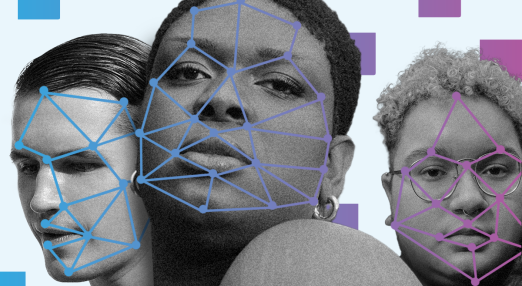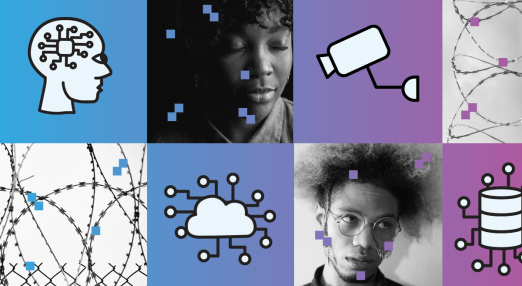EU adopts Digital Trade Agreement with Singapore despite warnings: a setback for digital rights and democratic oversight
The European Parliament has approved the EU–Singapore Digital Trade Agreement, rejecting a motion to seek a Court of Justice opinion on its legality. This decision weakens the Union’s capacity to safeguard privacy, data protection, and accountability over software systems, at a time when deregulation pressures are increasing across Europe.
Filter resources
-

EU adopts Digital Trade Agreement with Singapore despite warnings: a setback for digital rights and democratic oversight
The European Parliament has approved the EU–Singapore Digital Trade Agreement, rejecting a motion to seek a Court of Justice opinion on its legality. This decision weakens the Union’s capacity to safeguard privacy, data protection, and accountability over software systems, at a time when deregulation pressures are increasing across Europe.
Read more
-

The AI Act isn’t enough: closing the dangerous loopholes that enable rights violations
While the EU's AI Act aims to regulate high-risk AI systems, it is undermined by major loopholes that allow their unchecked use in the context of national security and law enforcement. These exemptions risk enabling, among others, mass surveillance of protests and discriminatory migration practices. To prevent this, EDRi affiliate Danes je nov dan has published recommendations for Slovenia to adopt stricter national safeguards and transparent oversight mechanisms.
Read more
-

The Commission must uphold the AI Act and fundamental freedoms in Hungary
ECNL, Liberties and the Hungarian Civil Liberties Union called on the EU to protect Pecs Pride participants from AI surveillance.
Read more
-

A blueprint for success: How Danes je nov dan’s advocacy led to a commitment for a Public AI Registry in Slovenia
In Slovenia, the use of artificial intelligence (AI) by the public sector has been expanding without significant public oversight, creating the potential for harmful or even dangerous uses of AI systems. To close this gap, EDRi affiliate Danes je nov dan launched an advocacy campaign calling for a national AI registry to ensure transparency and accountability. Their efforts led the Ministry of Digital Transformation to commit to establishing such a registry, a model that can inspire AI transparency initiatives across Europe.
Read more
-

One year of the AI Act: What’s the political and legal landscape now?
The EU Artificial Intelligence (AI) Act came into force on August 1, 2024. This blog takes stock of the political and legal landscape facing its implementation and enforcement one year on, especially efforts to delay or even gut the law which would have far-reaching effects on people’s rights, especially when it comes to migration and law enforcement use of AI.
Read more
-

Open letter: European Commission must champion the AI Act amidst simplification pressure
52 civil society organisations, experts and academics have written to the European Commission to express their concerns about growing pressure to suspend or delay the implementation and enforcement of the Artificial Intelligence (AI) Act. Instead of unraveling the EU rulebook, which includes hard-won legal protections for people, the Commission should focus on the full implementation and proper enforcement of its rules, like the AI Act.
Read more
-

OPEN LETTER: The European Commission must act now to defend fundamental rights in Hungary
With Budapest Pride set to take place on June 28, 2025, EDRi and 46 organisation are urging the European Commission to defend fundamental rights in Hungary so that Pride organisers and participants can safely exercise their right to peaceful assembly and freedom of expression.
Read more
-

Croatia in preparation for AI Law: Activists warn of risks to rights and call for safeguards going beyond EU AI Act
EDRi affiliate Politiscope recently hosted an event in Croatia for journalists and activists to discuss human rights impact of Artificial Intelligence (AI), raise awareness about AI related harms, and to influence future national policy to incorporate safeguards for people’s rights.
Read more
-

When technology is the problem, not the solution: Lessons from harmful consequences of techno-solutionism in digital surveillance
AI-powered surveillance systems are being deployed globally - from Israel and Russia to EU member states. These systems target marginalised communities under the guise of improving security and efficiency. To rectify these harms, we must challenge techno-solutionist narratives and rethink why and how technology is used, and center human rights.
Read more
-

Digital trade: the new frontline in the fight for our rights
The EU is signing digital trade deals that could undermine fundamental rights and block oversight of software systems shaping our lives. From data protection to algorithmic accountability, these agreements risk empowering opaque systems - used by both companies and governments - at the expense of the people most affected by them.
Read more
-

Hungary’s new biometric surveillance laws violate the AI Act
This blog post is a legal analysis of new legislation in Hungary that uses facial recognition technology in a manner that violates the EU Artificial Intelligence Act. Such use of this technology risks discouraging people from exercising their fundamental rights undermining their trust in democracy.
Read more
-

Civil society to European Commission: Act now to defend fundamental rights from Hungary’s Pride ban and the use of facial recognition against protesters
EDRi, along with a broad coalition of civil society organisations, demands urgent action from the European Commission on Hungary’s new law banning Pride marches and permitting the use of live facial recognition technology targeting protesters.
Read more
